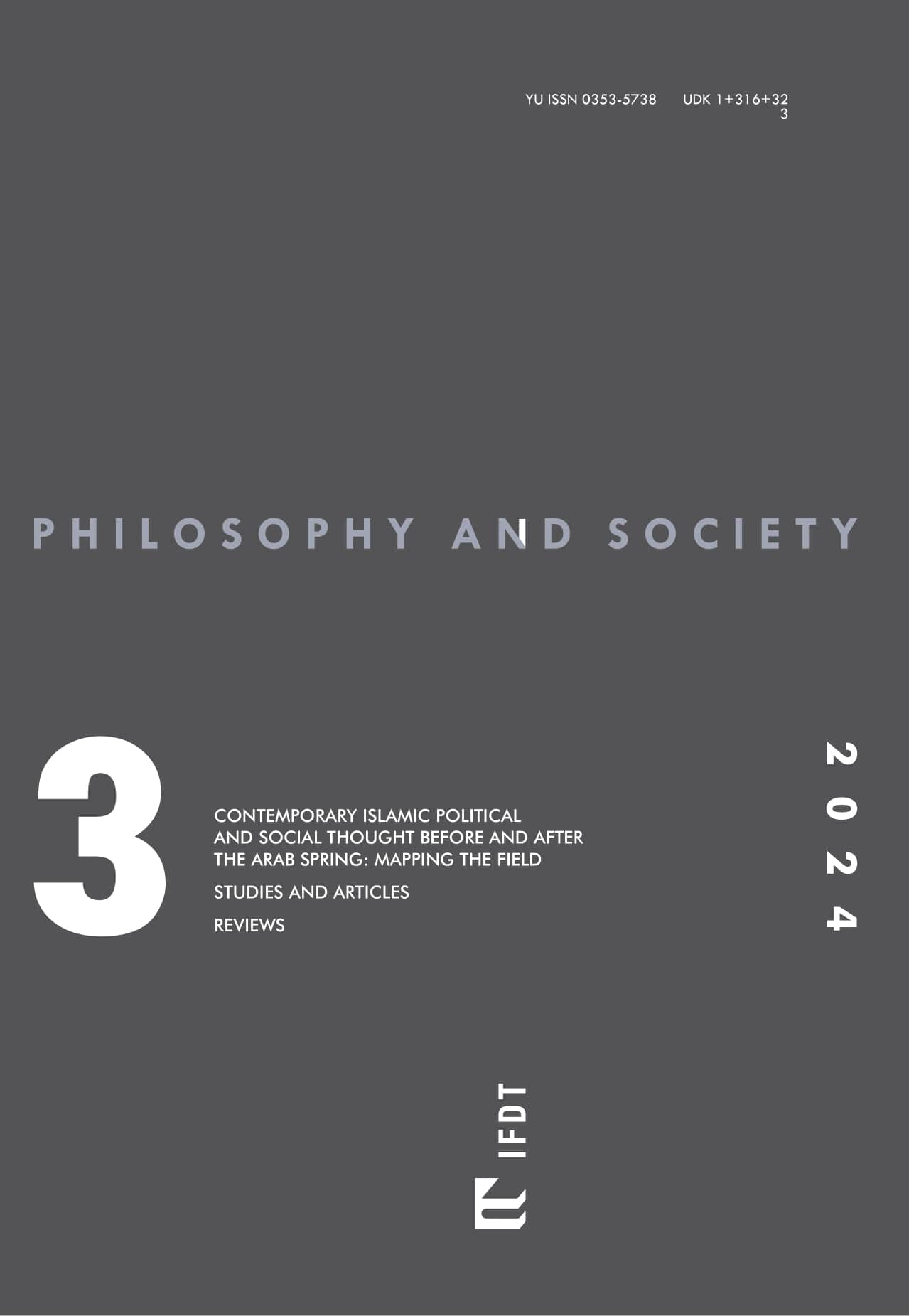Ennahda’s Muslim Democracy in Post-Arab Spring Tunisia: Synthesizing Political Thought and Practice
Ennahda’s Muslim Democracy in Post-Arab Spring Tunisia: Synthesizing Political Thought and Practice
Author(s): Imad Alsoos, Julius DihstelhoffSubject(s): Politics / Political Sciences, Political Theory, Theology and Religion, Islam studies, Politics and religion, Sociology of Religion
Published by: Institut za filozofiju i društvenu teoriju
Keywords: Ennahda; political Islam; Muslim democracy; functional specialization; re- authoritarianism; organizational reformation
Summary/Abstract: This article explores the interplay between political thought and practice within Tunisia’s Ennahda party, first during its period in opposition, then after it took power in 2011, and finally in the aftermath of the 2021 coup. We trace the genealogy of political thought within the party from the point of its foundation. In doing so, we explore the gradual evolution of party ideology, from a daʿwa-based belief system between 1969 and 1981, to Islamic democracy between 1981 and 2011, to ‘Muslim democracy’ after the 2011 uprising. We examine this ideological evolution through the framework of three key elements: (i) Islam, (ii) Tunisia’s changing socio-political context, and (iii) the broader universal episteme. As we show, a significant turning point came in 2016, with the separation of the daʿwa from party politics, which revealed a burgeoning state / party conceptualization of politics. However, the 2021 coup challenged Ennahda’s concept of Muslim democracy, as well as all aspects of the party’s own sense of continuity as a significant socio-political actor, such as its institutional structure, leadership, membership, social base, political strategy, and ideology. Ennahda is now confronted by an authoritarian resurgence, which aims at containing the party, and at delegitimizing its participation within nation-state structures. Empirical evidence, based on content-analytical evaluations of personal interviews as well as the media’s coverage of Ennahda, shows that the party’s representatives are increasingly focusing on organizational reform in order to deal with the ramifications of the 2021 coup. Their aim seems to be to democratize both Ennahda and the Tunisian state itself.
Journal: Filozofija i društvo
- Issue Year: 35/2024
- Issue No: 3
- Page Range: 515-536
- Page Count: 22
- Language: English

